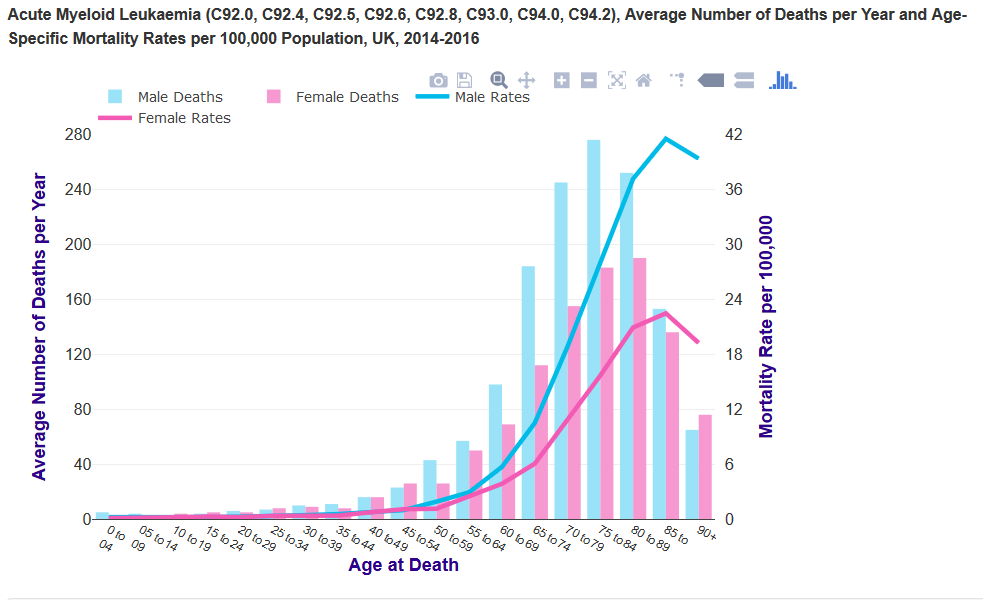Prognosis of AML
Acute myeloid leukaemia mortality is strongly related to age, with the highest mortality rates being in older people.
- in the UK in 2014-2016, on average each year more than half (52%) of deaths were in people aged 75 and over - largely reflects higher incidence and lower survival for acute myeloid leukaemia in older people
- age-specific mortality rates rise steadily from around age 50-54 and more steeply from around age 60-64
- highest rates are in the 85 to 89 age group for males and females. Mortality rates are significantly higher in males than females in a number of (mainly older) age groups. The gap is widest at age 90+, when the age-specific mortality rate is 2 times higher in males than females

Younger adults:
- 70-80% of adults with AML under 50 years achieve complete remission
- post-remission chemotherapy is curative in 20-30% of cases
- allogeneic bone marrow transplantation is curative in 45-55% of cases - but bone marrow transplants are restricted to persons under 55 years of age, and often, only to those who have an HLA-matched sibling donors
Older adults:
- 50% achieve complete remission
Reference:
Related pages
Create an account to add page annotations
Annotations allow you to add information to this page that would be handy to have on hand during a consultation. E.g. a website or number. This information will always show when you visit this page.